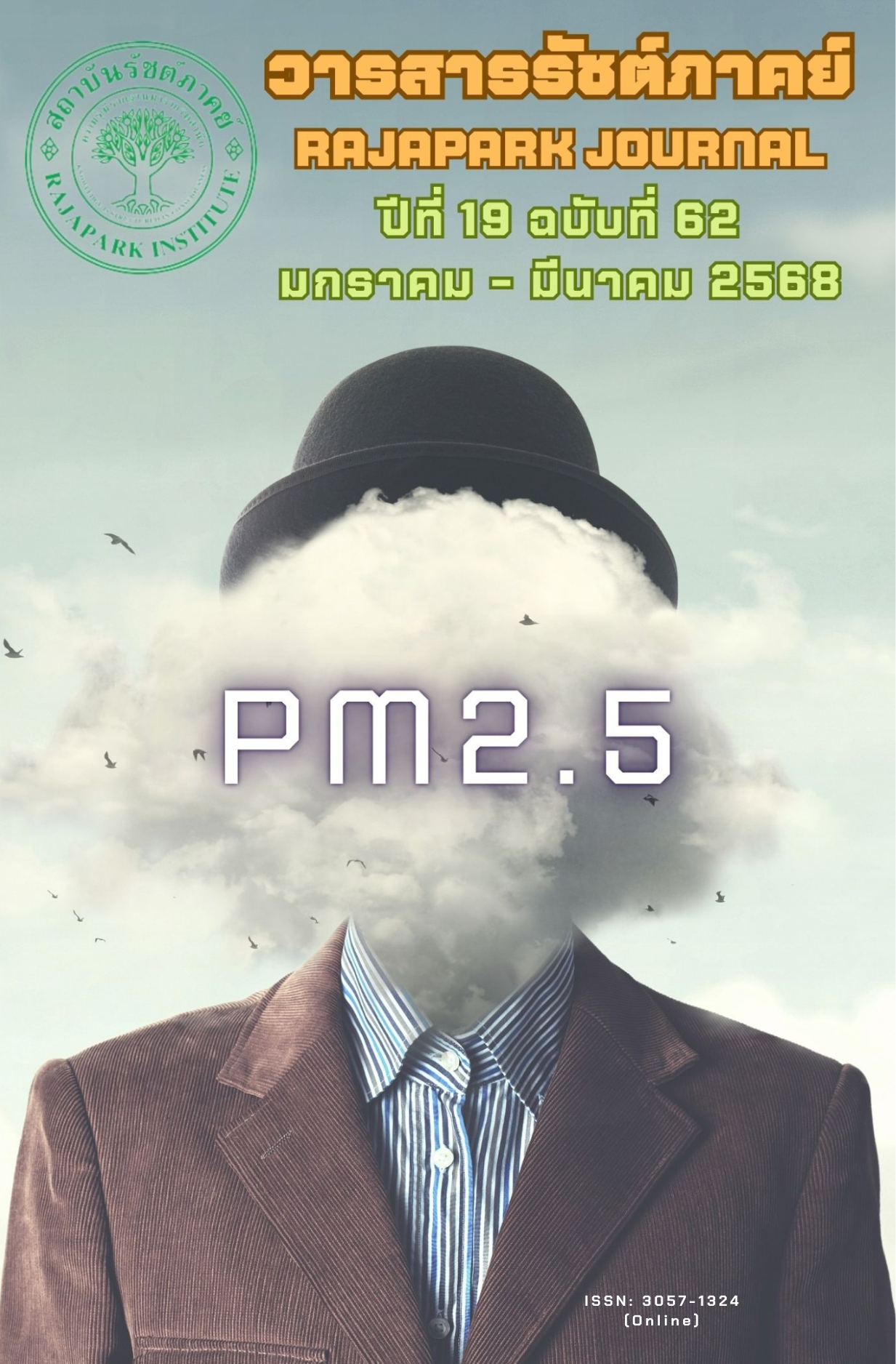Adaptation for Modern Service Businesses in Thailand's Special Economic Zones
Main Article Content
Abstract
This research aims to study 1) the environment and factors influencing the success of modern service businesses in special economic zones. 2) to explore adaptation strategies for modern service businesses in Thailand's special economic zones. The sample group for this research consists of 480 service business entrepreneurs and supervisors. The research tools used include a questionnaire with an overall reliability of 0.96. The statistical methods employed for data analysis are mean, standard deviation, Stepwise Multiple Regression Analysis, Canonical Correlation Analysis, and an examination of the relationship between environmental factors and those influencing the success of service businesses in special economic zones and adaptation strategies for modern service businesses in Thailand's special economic zones. The research findings revealed that; 1) The environment and factors influencing the success of modern service businesses in special economic zones, which enhance Thailand's economic competitiveness, consist of five areas (1) Management processes, (2) Human resources, (3) Technology, (4) Marketing, and (5) Location. 2) The adaptation strategies for modern service businesses in Thailand's special economic zones include six key aspects 1) Embracing globalization, 2) Managing workforce diversity, 3) Strong entrepreneurship, 4) Quality management, 5) Innovation and flexibility, and 6) Establishing electronic business models.
Article Details

This work is licensed under a Creative Commons Attribution-NonCommercial-NoDerivatives 4.0 International License.
Views and opinions appearing in the Journal it is the responsibility of the author of the article, and does not constitute the view and responsibility of the editorial team.
References
Kaewmanee, R. (2013). Bright border trade trends, opportunities of the industrial sector under the fluctuation of the Thai baht. Office Industrial Economic.
Kasikorn Research Center. (2021). The severe COVID-19 outbreak: restaurant business value in 2021 is expected to lose by 5.5 - 7.0 ten billion baht from the past year. https://www.kasikornresearch.com/th/analysis/k-econ/business/Pages/restaurantcovid19-z3237.aspx
Kiatnakin Phatra Finanacial Group. (2021). When industries cannot compete any longer, is the service sector the answer of Thailand?. https://advicecenter.kkpfg.com/th/kkp-research/service-sector-analysis
Kruengam, A. (2014). Service quality affecting customer loyalty in supercenters in Thailand[Doctoral dissertation, Rangsit University].
Lovelock, C., & Wirtz, J. (2007). Service marketing (6th ed). Prentice Hall.
Lovelock, C., & Wirtz, J. (2011). Service marketing: people, technology, strategy (7th ed.). Pearson Prentice Hall.
Mehrens, W.A., & Lehmann, I.J. (1991). Measurement and evaluation in education and psychology (2nd ed). Houghton Mifflin Company.
Murnpho, S. (2022). The adaptation model of the service businesses to support moving into the new normal. Western University Research Journal of Humanities and Social Science, 8(1), 89-104.
Naik, C. K., Gantasala, S. B., & Prabhakar, G. V. (2010). Service quality (servqual) and its effect on customer satisfaction in retailing. European Journal of Social Sciences, 16, 231-243. https://pdfs.semanticscholar.org/d124/e866687313a05a8ae38c2cd8d7f49e257830.pdf
Narintorn, A. (2018). Model adaptation to create a competitive advantage of hospitality industry for entrepreneurs in the tourism service sectors in Bangkok area. Panyapiwat Journal, 10(3), 84-95.
National Statistical Office. (2014). The 2014 business trade and services survey whole Kingdom. Ministry of Information and Communication Technology.
Navarat Na Ayudhya, T. (2014). Service marketing: concepts and strategies. Chulalongkorn University.
Noe, R.A., Hollenbeck, J.R., Gerhart, B., & Wright, P.M. (2024). Human resources management: gaining a competitive advantage (13th ed.). McGraw-Hill.
Parasuraman, A., Zeithaml, V. A., & Berry, L. L. (1994). Reassessment of expectations as a comparison standard in measuring service quality: implications for further research. Journal of Marketing, 58, 111–124.
Pittayapongsakorn, N. (2020, May 14). The new normal of Thai education. https://tdri.or.th/2020/05/desirable-new-normal-for-thailand-education/
Robbins, S. P., & Judge, T. A. (2008). Essentials of organizational behavior. Pearson Prentice Hall.
Sareerat, S., Hirankiti, S., & Tungsintrapsiri, T. (2007). Organizational behavior management. Thira Film and Scitex.
Schmenner, R. W. (1995). Escaping the black holes of cost accounting. Business Horizons, Elsevier, 31(1), 66-72.
Taylor, F. W. (2002). The principles of scientific management. Harper.
The Bank of Thailand. (2021). Effects and adaptation (resilience) of hotel and restaurant entrepreneurs during the COVID-19 outbreak. https://www.bot.or.th/Thai/ResearchAndPublications/articles/Pages/Article_26Oct2021.aspx
Weihrich, H., & Harold K. (1993). Management: a global perspective (10th ed.). McGraw-Hill.
Yamane, T. (1973). Statistics: an introductory analysis (3rd ed.). Harper & Row.


